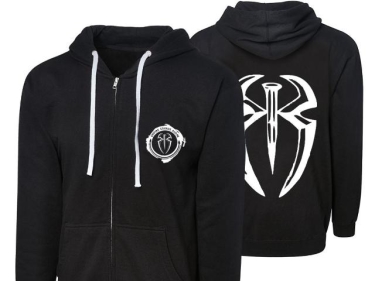Live animals
Couldn't find the product you want?
Fill out this form to request the product.
Products You May Like
Export from Cuba
The economy of Cuba is a planned economy, which means that the largest part of the country's production is owned and controlled by the government. The main sectors of the Cuban economy are industry, agriculture and tourism. Agriculture represents about 10 percent of the country's GDP and 20 percent of the population are employed in this sector. The main crops cultivated in Cuba are tobacco, coffee, sugarcane, citrus, beans, rice, livestock and potatoes.
The main mineral resource of Cuba is nickel, representing 21 percent of total exports. Other important mineral resources are cobalt, iron ore, steel, marble and petroleum. Cuba also produces cement and asphalt.
Tourism in an important part of the Cuban economy and it is one of the major sources of revenue for the country. Cuba is a popular touristic destination due to its favorable climate, beaches and a mixture of different cultures.
Cuba is the world's 136th largest exporter, the main exports being sugar, nickel, refined fuels, pharmaceuticals and tobacco. Cuba also exports beverages, iron and steel, fish and wood. The most important Cuba's export destinations are the UK, Spain, the Netherlands, Canada,Venezuela and China.
Import to Cuba
Cuba had a difficult period in its economy, but now the government works on reforming the economy thus contributing to the economic growth. The government of Cuba approved a plan for economic changes in April 2011. As a result, limited economic reforms (allowing people to buy electronics, buy and sell used cars) were implemented. Also the government gave the possibility for entrepreneurs to be "self-employed".
Reforms equally included permission for the private ownership, sale of new vehicles, sale of agricultural products directly to hotels and adopting a new foreign investment law.
It should be mentioned that Cuba’s economy is quite dependent on imports, more than 80 percent of all food consumed in Cuba being imported. In this context the United States is the main food supplier for the country.
Cuba mainly imports vehicles, motor parts, machinery and equipment, food, vegetable oils, cereals, chemicals, fuel and diesel engines. Cuba’s main sources of import are Venezuela (which represents 30 percent of the total imports), China, Spain, Brazil, the US, Mexico, Canada, Italy, Germany, Vietnam and Russia.
Check Out Export Portal: A Site That Lets You Export Live Animals
If you are looking to buy and export animals, then you came to the right place! Export Portal's Live Animals Department is an online marketplace for sellers and buyers of any livestock. We work to contribute to the live export industry, which brings many economic advantages and other benefits to countries that rely heavily on livestock imports. In fact, in just Australia alone, this industry contributes roughly $1.8 billion to the country's GDP each year. Moreover, it also ensures food security while helping people meet their protein needs as well.
Finding the Right Animal
We feature a wide range of pigs, cows, sheep, goats, horses, rabbits and hares, turkeys, bees, and fish for sale. An increasing number of American, Australian, German, South African, Argentinian, and Italian farmers and companies are advertising their livestock with Export Portal, portraying just how effective and helpful our site is.
To help customers make more informed purchasing decisions, our site lets users narrow down their searches by the age, breed, and sex of the animal. If you are feeling hesitant to shop on our site and want more detailed information, make sure to check out our seller ratings and reviews, which are written by our buyers and customers. We also collaborate with hundreds of trusted international shipping companies that arrange the transport of all kinds of animals and birds to any country in the world.
Online Shopping is More Simple with Export Portal
Export Portal is an ideal site for everyone who is an avid online shopper. Our convenient options make it easy to find and buy whatever you are looking for. Our seller network from all over the world has everything you need, and our customer support team will make sure you can find it. Our wide assortment of products will be sure to provide you with the best shopping experience. Make sure to check out our site and items today!
Customs requirements of Cuba
Cuba Customs Contacts
Website: http://www.aduana.co.cu/
Email: publico@agr.aduana.cu
Telephone:(537)855-5466-71
Address: 6 st y 39 st, Plaza de la Revolución, La Habana, CP 10400
Cuba is situated where the Caribbean Sea, the Gulf of Mexico and the Atlantic Ocean meet. It is located south of Florida and the Bahamas, west of Haiti and north of Jamaica. The country is a member of the Bolivarian Alternative for the Americas, Latin American Integration Association, United Nations, Association of Caribbean States and Mercosur.
Export/Import Requirements
Goods can be imported into Cuba only by government entities and joint ventures holding permits for the specific goods in question. Agents can handle goods on consignment for licensed importers, but they cannot import on their own account and they cannot conduct distribution operations. Joint ventures with foreign participation will generally obtain their import permits through their Cuban partners, but the right to import specific categories of products may be included in negotiations when seeking approval of the joint venture agreement.
Import duties are generally managed and paid for by the Cuban importer. Following an update in 2008, the simple average tariff on approximately 5,400 commodities was reduced from 11.5% to 10.4% for most favoured nation (MFN) countries, according to the Ministerio del Comercio Exterior (MINCEX), Ministry of Foreign Trade. The maximum MFN tariff is 30%. Cuba applies the MFN rate to goods originating in Canada and other countries with which it has bilateral agreements. Non MFN general tariff averages 17.9%. Cuba is also a member of the Latin American Integration Association (ALADI). Import tariff classifications are based on the Harmonized System (HS) at the 8-digit level. Entities with foreign partners may be granted duty free status for some or all of those products as part of their economic association or joint venture agreement.
A license is required for the export or reexport to Cuba of all items subject to the Export Administration Regulations (EAR).
Source:
http://www.bis.doc.gov/index.php/policy-guidance/country-guidance/sanctioned-destinations/cuba





